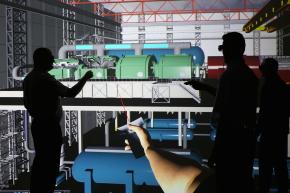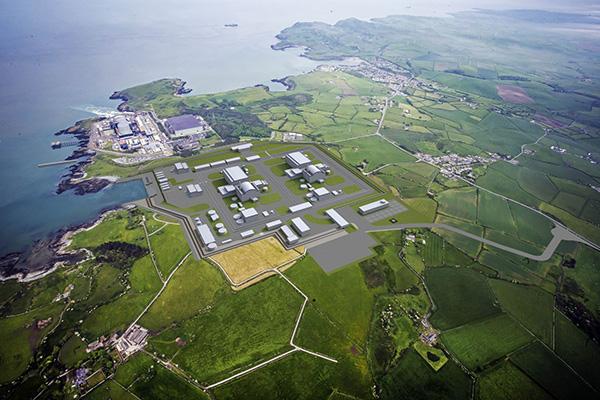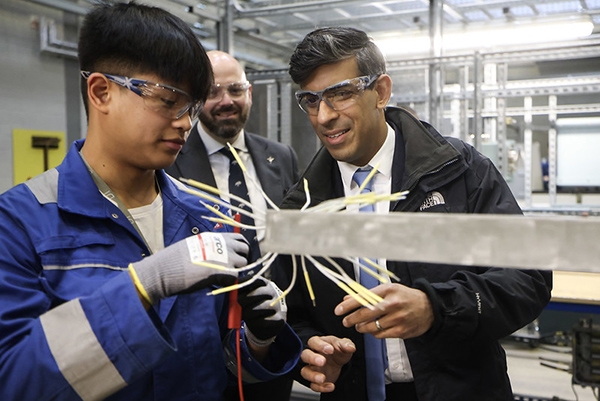Supply chains in the civil nuclear sector can be complex and demanding things. For manufacturers who want to win work in the multi-billion pound sector, it’s vital to understand where your company can fit and who will be purchasing your products.
 Martin Ride, purchasing and supply chain specialist at the Nuclear AMRC, is urging companies which can potentially win work in civil nuclear to make the effort to understand where they can sit in the market.
Martin Ride, purchasing and supply chain specialist at the Nuclear AMRC, is urging companies which can potentially win work in civil nuclear to make the effort to understand where they can sit in the market.
“As with any other industry sector, there are nuances and cultures along with expectations and standards,” Ride says. “Nuclear sector buyers want to know that potential suppliers do understand the market and have done their homework.”
The top tier of buyers in nuclear new build and decommissioning will generally operate their supply chain and opportunity management in line with specific and well-defined strategies. “These can be project or product-based, leading to specific categories or component-type groupings,” Ride notes. “Strategies will vary from buyer to buyer, and can often have links to wider, potentially, globalised strategies.”
These buyer strategies will often be based around framework agreements. This is common in the UK decommissioning market, where site licence companies such as Sellafield Ltd place major packages of work with key contractors. For example, Sellafield recently announced a £20 million contract with Tata Steel for the provision of high-integrity containers and doors.
Ride explains: “Framework agreements will be openly and commercially tendered, with successful organisations being either recognised key brand names or collaboration-based consortiums. For the majority of manufacturers seeking to pursue opportunities, the route to market will very often be through the framework-winning companies.”
In the new build sector, EDF Energy is taking a similar approach. EDF is appointing seven prime contractors for Hinkley Point C, and has already named Alstom, Areva, Bylor and Costain ahead of its final investment decision (FID). Each one of these so-called FID7 will have its own purchasing and procurement strategy. And while EDF Energy is working with the Nuclear AMRC to identify potential suppliers, most manufacturers will work for one of the FID7 or their sub-contractors.
The other developers planning new reactors in the UK, Horizon Nuclear Power and NuGeneration, are expected to use a similar model.
“Your specific capabilities and interest will affect at what level your routes to market will be, and therefore who you actually need to be engaging with,” Ride emphasises. “Understanding the market will require you to take the time to map the specific area of interest, starting from the prime customer level to get to the levels where opportunities will arise from. This will really help you to develop your own specific engagement strategy, which may actually prove to be quite different from your first expectation.”
The Nuclear AMRC’s team of sector specialists can work with UK manufacturers to find their place in the civil nuclear supply chain, and help them get ready to meet buyer requirements.
 The Fit For Nuclear (F4N) programme has been developed in collaboration with the industry’s top tier to help companies measure their capabilities against sector standards and drive improvements to close any gaps.
The Fit For Nuclear (F4N) programme has been developed in collaboration with the industry’s top tier to help companies measure their capabilities against sector standards and drive improvements to close any gaps.
F4N is managed by the Nuclear AMRC with support from the Manufacturing Advisory Service (MAS), part of the government-backed Business Growth Service.
F4N offers a journey of business improvement which can help manufacturers refine their nuclear strategy, implement new processes, secure additional qualifications, and match their capabilities to specific supply opportunities.
“Our experienced supply chain and business professionals will be able to give you a much clearer view in terms of how buyer organisations work and how best to plan to engage with them,” Ride says. “When it comes to having to pre-qualify for work, then suppliers with a firm understanding of the market will be better placed to respond, increase selection and tendering opportunities, and ultimately win work. Fit For Nuclear is the first step on that journey.”
To find out more about the support and funding available through the Fit For Nuclear programme, contact MAS advisors on 0207 728 3028 or email fitfornuclear@mymas.org.






